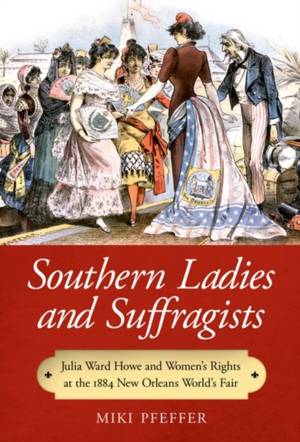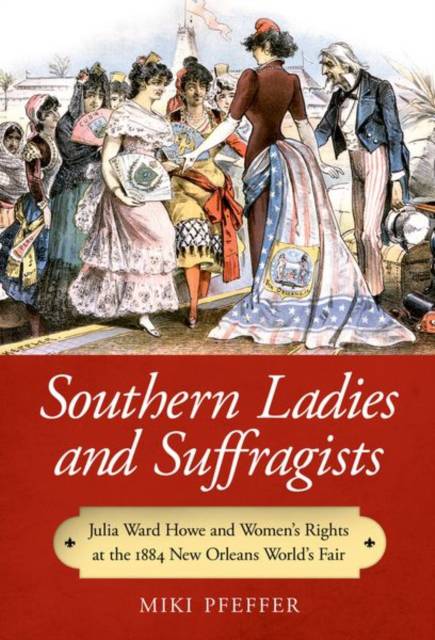
- Retrait gratuit dans votre magasin Club
- 7.000.000 titres dans notre catalogue
- Payer en toute sécurité
- Toujours un magasin près de chez vous
- Retrait gratuit dans votre magasin Club
- 7.000.0000 titres dans notre catalogue
- Payer en toute sécurité
- Toujours un magasin près de chez vous
Southern Ladies and Suffragists
Julia Ward Howe and Women's Rights at the 1884 New Orleans World's Fair
Miki Pfeffer
Livre relié | Anglais
186,95 €
+ 373 points
Format
Description
A CLOSE LOOK AT THE ISSUES OF GENDER AND POWER AT THE 1884 WORLD'S FAIR IN NEW ORLEANS Women from all over the country came to New Orleans in 1884 for the Woman's Department of the Cotton Centennial Exposition, that portion of the World's Fair exhibition devoted to the celebration of women's affairs and industry. Their conversations and interactions played out as a drama of personalities and sectionalism at a transitional moment in the history of the nation. These women planted seeds at the Exposition that would have otherwise taken decades to drift southward. This book chronicles the successes and setbacks of a lively cast of postbellum women in the first Woman's Department at a world's fair in the Deep South. From a wide range of primary documents, Miki Pfeffer re-creates the sounds and sights of 1884 New Orleans after the Civil War and Reconstruction. She focuses on how difficult unity was to achieve, even when diverse women professed a common goal. Such celebrities as Julia Ward Howe and Susan B. Anthony brought national debates on women's issues to the South for the first time, and journalists and ordinary women reacted. At the World's Industrial and Cotton Centennial Exposition, the Woman's Department became a petri dish where cultures clashed but where women from across the country exchanged views on propriety, jobs, education, and suffrage. Pfeffer memorializes women's exhibits of handwork, literary and scientific endeavors, inventions, and professions, but she proposes that the real impact of the six-month long event was a shift in women's self-conceptions of their public and political lives. For those New Orleans ladies who were ready to seize the opportunity of this uncommon forum, the Woman's Department offered a future that they had barely imagined. Miki Pfeffer, Thibodaux, Louisiana, is an independent researcher and native New Orleanian whose work has appeared in the Encyclopedia of World's Fairs and Expositions and in journals such as the Louisiana Historical Journal and La Creole.
Spécifications
Parties prenantes
- Auteur(s) :
- Editeur:
Contenu
- Nombre de pages :
- 267
- Langue:
- Anglais
Caractéristiques
- EAN:
- 9781628461343
- Date de parution :
- 01-11-14
- Format:
- Livre relié
- Format numérique:
- Genaaid
- Dimensions :
- 152 mm x 229 mm
- Poids :
- 580 g

Les avis
Nous publions uniquement les avis qui respectent les conditions requises. Consultez nos conditions pour les avis.






